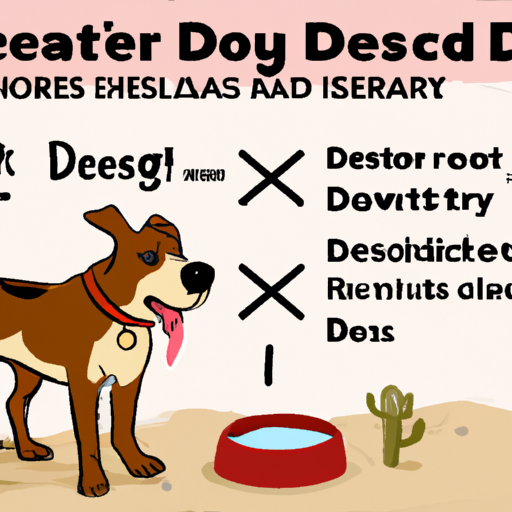Introduction
As a responsible and caring pet owner, your dog’s health is of paramount importance to you. We understand your passion and dedication, and that’s why we’re here to help you understand more about one common health issue dogs face: dehydration.
What is Dehydration?
Dehydration in dogs occurs when your canine companion loses more bodily fluids than they take in. This imbalance disrupts normal body functions and can lead to serious health complications if not addressed promptly.
Causes of Dehydration in Dogs
- Excessive heat exposure: Just like humans, dogs can become dehydrated if they spend too much time in hot environments without enough water intake.
- Vomiting and diarrhea: These conditions can cause rapid fluid loss, leading to dehydration.
- Fever or illness: When your dog’s body fights off an illness, it can lead to dehydration.
- Lack of water intake: This might seem obvious, but if your dog isn’t drinking enough water, they’re at risk of becoming dehydrated.
| Causes | Solutions |
|---|---|
| Excessive heat | Limit outdoor time |
| Vomiting and diarrhea | Seek veterinary assistance |
| Fever or illness | Provide plenty of fluids |
| Lack of water intake | Encourage drinking regularly |
Symptoms of Dehydration in Dogs
Recognizing the signs of dehydration is a crucial part of being a responsible dog parent. Keep an eye out for the following symptoms:
- Loss of appetite
- Reduced energy levels and lethargy
- Sunken, dry-looking eyes
- Dry and sticky gums
- Loss of skin elasticity
Preventing Dehydration in Dogs
Prevention is always better than cure. Here are some steps you can take:
- Always ensure your dog has access to fresh, clean water.
- Avoid long walks or vigorous play in hot weather.
- Regularly check your dog for signs of illness and seek immediate veterinary attention if you notice anything unusual.
Frequently Asked Questions
Q: How can I tell if my dog is dehydrated?
A: Symptoms of dehydration in dogs include loss of appetite, lethargy, sunken eyes, dry gums, and loss of skin elasticity.
Q: What should I do if I think my dog is dehydrated?
A: If you suspect your dog is dehydrated, seek immediate veterinary attention.
Q: Can I prevent dehydration in my dog?
A: Yes, by ensuring they always have access to fresh water, avoiding excessive heat, and monitoring for signs of illness.
Q: Can dehydration in dogs be serious?
A: Yes, severe dehydration can lead to serious health issues and should be treated as a veterinary emergency.
Remember, as a caring pet owner, your dog’s wellbeing is in your hands. Stay informed, stay vigilant, and your furry friend will thank you!



